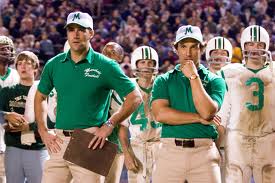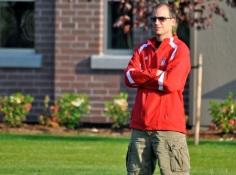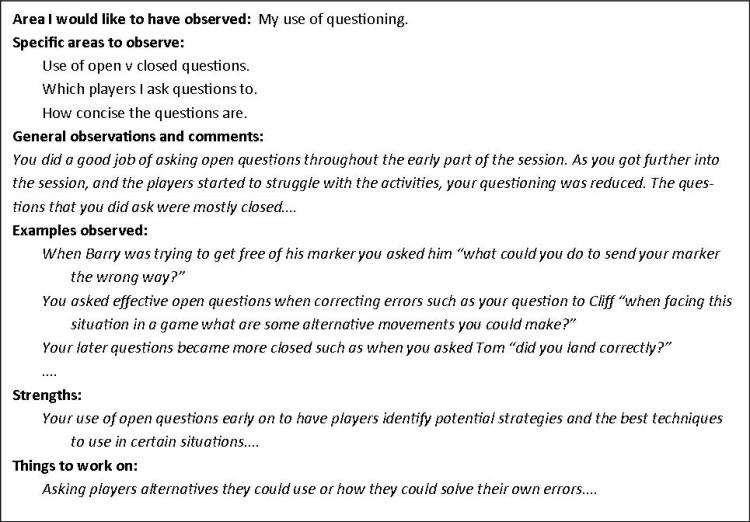Part 6 – Assistant Coaching
Jeff Mitchell – Community Coach Advisor – Sport Auckland / GACU
This is the sixth article in a series of 13 on developing your coaching skills. For the full list of articles in the series see the articles page.
Coaching can be a lonely affair at times. All too often coaches operate in isolation, coaching their team without really interacting with other coaches. To combat this – and to share some of the load – a coach will sometimes take on an assistant coach. In this
article we will look at how you can improve your coaching by being an assistant
coach.
The assistant coach role
Why would a coach decide to take on an assistant? They may want someone to talk to, to exchange ideas with, and to use as a sounding board when trying to solve problems. By delegating some of their coaching tasks they are able to concentrate on the areas of coaching that will have the greatest impact on the team’s performance. They can also bring in someone with skills that complement their own.
The tasks that you perform as an assistant coach will depend on what the head coach requires. These could be quite menial, such as setting out and picking up cones. They could also be quite challenging, such as performing player analysis or coaching parts of the sessions. Regardless of your specific roles, as an assistant coach you are able to benefit from the experience.
Why be an assistant coach?
Working alongside another coach provides you with a great opportunity to learn from someone else. They will have experiences that are different from your own, and will have their own ways of doing things. While it is good to go down and observe a session or two from another coach, it is much more valuable if you are actually coaching alongside them day in and day out. Not only will you see what they do, you will have the opportunity to discuss it with them and develop your understanding further.
By working closely with another coach you will have someone you can easily go to to ask for advice or suggestions, and to discuss issues with. The head coach will also be in a great position to provide you with feedback regarding your coaching and the sessions you plan. Not only are they already there when you are delivering, they also have a vested interest in your development – the better you develop your coaching, the better the coaching their athletes receive. Any head coach that is serious about their athletes will also be serious about developing their assistant coaches. The best way to encourage the head coach to develop you is by being an effective assistant coach.
Being an effective assistant coach
To be an effective assistant coach you need to pay attention to a number of areas. You need to be professional – you should hold yourself to the same standards as the head coach. Make sure that you are regularly communicating with your head coach so that you understand the key messages they are trying to get across; you need to reinforce these messages. Be willing to help out wherever needed – flexibility is important in an assistant coach role.
Loyalty is very important for an assistant coach. You should support the head coach and avoid contradicting them or going behind their back. If you have issues you need to address these with them – but make sure that you do this in private. Players and parents will often come to you with complaints or comments. Your job is to filter these and pass the relevant ones on to the head coach. This needs to be done without undermining the head coach.
Making the most of an assistant coach role
To get the most out of being an assistant coach you need to work at it. Taking a deliberate approach to your development while coaching as an assistant will help you to make the most of the experience. Here we will share some tips on how to benefit from being an assistant coach.
Have a clear purpose
When you take on an assistant coach role you need to be clear about what you are trying to achieve. This should be based on your coach development plan. If you are clear on what you are trying to achieve you can then identify how to take advantage of your opportunities to learn. It can also help you to identify who you want to assist – putting yourself into a situation where you will grow the most.
Being an assistant coach isn’t all about you – remember you are there to assist the head coach and to help the players and the team to develop. Being clear on what you want to achieve for your own development allows you to create a win-win situation.
You will learn a lot if you actively observe what the head coach does, how they do it, and the impact it has on the athletes. Some things that you could pay attention to include:
- how they interact with the athletes
- the impact on the athletes of what they do
- when they step in and coach
- when they allow the players to solve problems for themselves
- when and how they ask questions
- how they facilitate athlete decision making
- what coaching points they provide
- how they deliver demonstrations
- how they explain activities
- how they manage group and individual behaviour.
Just seeing what the coach does will not be enough to improve your own coaching. It is important that you also understand what they have done, why they have done it, and how they have done it. This understanding will allow you to incorporate what you observe into your own coaching.
To understand what the coach has done you could try the following:
- asking the coach afterwards to explain what they did and why they chose that approach
- looking at how the players react and what impact the coach’s actions have on their attitude and performance
- thinking about how you would approach the same situation
- thinking about how you would use what you have observed in your own coaching
- doing further research to understand the area better (e.g. researching how to ask effective questions)
- talking to the players and getting their views.
Seek feedback
Getting feedback on your coaching is a good way to highlight areas of your delivery you weren’t aware of and will give you another perspective to consider when you reflect on your own practice. It is important to ask for feedback on your coaching as the head coach may not always be forthcoming with it. This may be due to the time constraints they are under, because they are not sure if you want feedback, or they may just not have thought to give you any.
You could ask the head coach to give you some general feedback on your coaching, or you may ask them to look at a specific part of what you do. For instance you may ask them to look at how you communicate with the athletes, how you perform demonstrations, or how effective your questions are. If you give them a specific area to observe it is more likely that you will get feedback that is relevant and that you will take action on. This is a role that a mentor could also perform; in the next issue we will look at working with a mentor.
Another way to get feedback is to write out session plans for the head coach to review. Listen to what they say about them and then think about how you can incorporate the feedback to write better sessions. Take any chance you have to get quality feedback on your coaching, and use it to make you a better coach. Consider what they say, ask for clarification if needed, and decide for yourself if it is something that can help you to improve.
To get quality feedback you may want to provide the head coach with a form to help them to capture their thoughts and present them to you. Let’s look at how Coach Gary has used a form to get effective feedback from his head coach.
One risk with being an assistant coach is that you may sit back and just do what is asked of you. In order to grow you need to keep challenging yourself and pushing yourself outside of your comfort zone. You should always be looking for ways that you can extend yourself, while still working within the parameters of your role.
Asking for and taking on more responsibility is a good way to challenge yourself. Let the head coach know that you want to take on more responsibility, and suggest to them ways that you could do this. This could include having a greater role in coaching sessions, or having responsibilities on match day. It could involve being responsible for an area of the team, e.g. the forwards. If you are not currently very hands-on in your role then it may be as simple as being responsible for taking the warm-up.
Another way to challenge yourself is to be prepared to step up when necessary. When the head coach is unavailable take the opportunity to challenge yourself by filling in. If the head coach gives you an opportunity to do something challenging, take it. You have a support system there with the head coach; it is much better to take on a challenge in this environment than to wait until you are on your own and have no one to support you.
Being an assistant coach provides a great opportunity to learn from another coach while getting feedback on your own coaching. A similar process can be achieved by working with a mentor. In the next issue we will discuss how you can get the most from working with a mentor.




Reblogged this on Boots & Buzz.